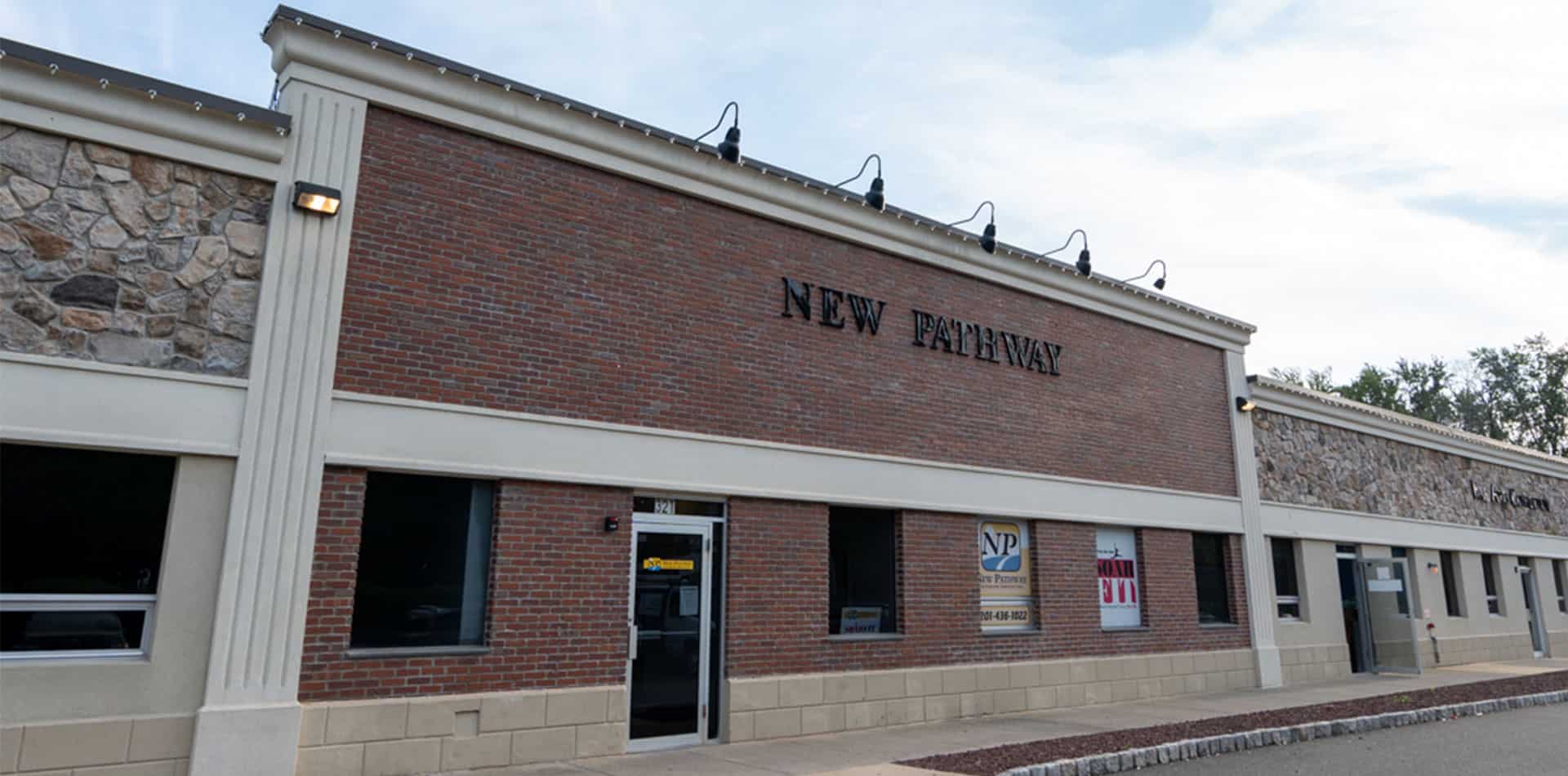Adolescent Academic Program
What you will learn:
- The importance of education in supporting adolescent recovery and boosting self-esteem.
- How individual learning plans align with therapeutic goals.
- Guardian Recovery's holistic approach to education and treatment.
We Specialize In Adolescent Treatment
"*" indicates required fields
By selecting this checkbox and entering mobile number I agree to receive GR Support from Guardian Recovery Network Holdings LLC. Message frequency varies. Text HELP to 96909 for help, Text STOP to 96909 to end. Msg&Data Rates May Apply. By opting in, I authorize Guardian Recovery Network Holdings LLC. to deliver SMS messages using an automatic dialing system and I understand that I am not required to opt in as a condition of purchasing any property, goods, or services. By leaving this box unchecked you will not be opted in for SMS messages at this time. Click to read Terms and Conditions & Privacy Policy.
Our Adolescent & Teen Academic Program
Academics are fundamental to your teen’s future—and an integral part of life at Guardian Recovery. We don’t just tackle behavioral and substance use issues. We nurture minds, rebuild confidence, and help your teen rediscover their potential in and out of the classroom. In effect, we strive to reignite your child’s passion for learning and set them up for long-term success.
Our dedicated educators work collaboratively with clinical staff to create a holistic experience that addresses both the emotional challenges and academic goals of each student. This synergy fosters a sense of stability, allowing teens to thrive as they learn coping strategies, improve their self-regulation skills, and embrace their educational journey with renewed vigor. Via the following content, which delves further into our programs, you’ll see how we empower your child to flourish academically while navigating their path to recovery.
Purpose and Importance of Adolescent Education During Substance Use Treatment
Adolescence is a critical period for personal and academic development, and when teens face mental health and behavioral challenges, their education can often take a back seat. However, education during this time is crucial for a couple of key reasons.
Supporting Adolescents in Their Recovery
Engaging in academic pursuits provides structure and routine, which are essential for recovery and well-being. Education helps teens redirect their focus to positive activities, reducing the likelihood of relapse and allowing them to focus on the future. By integrating education into the treatment process, we offer a holistic approach that addresses both mental health and academic needs.
Fostering Academic Achievement and Self-Esteem
Success in academics can significantly boost a teen’s self-esteem. Our program is designed to create an environment where students can achieve their educational goals, leading to a sense of accomplishment that enhances their confidence. This newfound self-assurance can empower them in multiple facets of their lives.
Get Local Help
Questions?
Learn More About the Recovery Process
- Our Approach
- The Treatment Process
- Frequently Asked Questions
- Insurance Check
- Ask a Question
Our Approach to Supporting Your Child’s Education & Schooling
Our educational approach is centered around collaboration and communication among all individuals, including our treatment professionals, psychiatrists, parents, educators, and more. We work with both you and your teen’s school district to build a coordinated and extensive support system. In doing so, we can address any difficulties or concerns that arise and make adjustments to their program if needed. We aim to give your teen a seamless academic experience that helps them develop lifelong learning skills that can help them be successful in their future endeavors.
Because teens receive treatment full time for 30 to 90 days on average, they don’t continue with standard schooling. Rather, Guardian Recovery provides teens with a dedicated classroom where they engage in our academic program for two hours a day, Monday through Friday. An instructor monitors internet access and answers any questions that arise during schooling sessions.
Additionally, we develop homeschooling plans that allow teens to remain enrolled in the courses they were taking at their middle or high school. As an alternative, we offer accessible learning options via our academic program, which allows teens to transfer the credits back to their schools.
Your Teen's Transformation Starts
Here
Guardian Recovery Adolescent can help your teen take control of their lives, putting them on a path to a brighter future filled with possibility.
Collaboration With Schools & Curriculums
Ongoing collaboration is critical. Thus, we continually work with each teen’s school, educators, treatment providers, parents, and others throughout the IEP/ILP process. With your permission, we hold regular meetings and provide ongoing updates to ensure that all concerned parties are working together to support the teen’s academic and recovery efforts and overall well-being.
To this end, we:
- Align Curriculums: We ensure that our academic offerings correspond with the curriculums used in your school district, so students don’t fall behind and can easily reintegrate post treatment.
- Share Progress Reports: Regular updates about academic performance and progress during treatment are shared with home schools, ensuring that educators are kept informed and can provide appropriate support.
Tailoring Education to Your Teen’s Treatment Goals
Education isn’t a one-size-fits-all approach at Guardian Recovery. Rather, each teen’s academic experience is tailored to align with their specific treatment goals. This alignment helps reinforce the therapeutic lessons learned in treatment, creating a cohesive experience that supports overall growth.
For example, if a student is working on developing coping mechanisms for anxiety, their academic tasks may include projects that emphasize mindfulness or stress-management techniques. This integrative approach bridges the gap between therapeutic practices and academic learning.
Complimentary Insurance Check
Find Out Today!
"*" indicates required fields
Does your insurance cover mental health?

Our Locations
Our Facilities & Teams Transform Lives
Changing lives by providing comprehensive support and rehabilitation, empowering individuals to overcome addiction and regain control of their health and well-being.
Experienced Educators
Our team of educators is not only skilled in various instructional methods but also deeply experienced in working with teenage populations. They bring a wealth of understanding regarding the challenges faced by adolescents in recovery, allowing them to create engaging and responsive learning environments. Key attributes of our educators include:
- Expertise in Adolescent Development: Our educators are trained to understand the cognitive and emotional development stages of teens, enabling them to connect with students effectively.
- Flexible Teaching Methods: Recognizing that each student learns differently, our educators use diverse teaching strategies to accommodate various learning styles and needs.
- Compassionate Support: We foster a classroom atmosphere that promotes trust and respect, encouraging students to take academic risks and express themselves freely.
Facilitating the Transition Back to School After Treatment
We work closely with your teen’s school district to develop a customized reintegration plan that includes ongoing support and monitoring. We aim to ensure they have the necessary strategies and resources in place to successfully navigate their educational path after treatment.
In terms of mental and emotional health, transitioning back to a traditional school environment can be challenging for teens who have completed treatment. At Guardian Recovery, we take proactive steps to foster your child’s well-being during this process, including:
- Counseling Services: Our broad network of services include individual and group counseling to address any anxieties or concerns about returning to school. Additionally, we can refer you to additional resources as needed.
- Peer Support Groups: We create opportunities for students to connect with peers who have had similar experiences, fostering a sense of community and shared understanding.
Ready to Change Your Teen’s Future?
Your Next Steps
Individual Learning Plans & Maintaining Academic Progress
Individualized education plans (IEPs), sometimes referred to as individualized learning plans (ILPs), identify specific education goals and support services to address your teen’s academic needs and challenges while also helping them progress in their recovery.
Components of IEPs Include:
- Assessing the teen’s needs, challenges, and strengths.
- Establishing goals and objectives based on assessment findings.
- Developing individualized strategies to meet educational and recovery goals.
- Providing a flexible curriculum adapted to the teen’s needs.
- Offering support services, such as access to tutors, therapists, and mentors.
- Monitoring progress to track the teen’s academic and recovery achievements.
- Developing a transition plan back to the teen’s school.
- Collaborating with those involved with the teen’s education and recovery.
- Employing a holistic approach by taking into account the emotional and social aspects of their lives as well as their academic needs.
Admissions and Enrollment: How to Get Started
Getting started with Guardian Recovery is a straightforward process designed to welcome families into our community. Here’s how to begin:
- Initial Phone Call: Reach out to our admissions team. Staff can not only answer your questions and outline treatment options but also verify your insurance benefits. If Guardian Recovery seems like a fit, we’ll also offer an initial assessment to help determine if treatment might be a viable solution for your child, and if so, which treatment level seems most appropriate. The call is free and confidential, and you’re under no obligation to enter care with us.
- Assessment and Planning: After enrollment, our team conducts a thorough assessment to create a tailored treatment and education plan that aligns with your child’s goals. Working with you and your teen, we adjust this plan as needed. However, it serves as our roadmap as your child proceeds through the various services.
Reach out to us today to learn more about how our tailored academic programs can benefit your teen’s educational journey while also allowing them to focus on their recovery and well-being. Our team of experienced therapists and educators is committed to promoting a supportive and nurturing environment that encourages growth and achievement. Our goal is to ensure your child is provided with the guidance and resources necessary for their educational development.
Whole-person transformation is possible. Guardian Recovery can help.
At Guardian Recovery, we are dedicated to providing a comprehensive, holistic approach to the treatment of anxiety disorders and dual diagnosis in adolescents. Our team of qualified professionals collaborates closely with families to develop individualized treatment plans that combine evidence-based therapies, holistic practices, and ongoing support.
If you’re worried about your teen’s struggles with substance use, troubling behaviors, or mental health—or you’re not sure whether you should be worried—Guardian Recovery can help.
Reach out now to speak with a treatment advisor, who can answer your questions, offer a brief assessment of your teen’s struggles, and discuss treatment options. Staff can also verify your insurance benefits and discuss alternative payment options. The call is free and confidential, and you’re under no obligation to enter care.
Health, hope, and healing are not just possible—they’re within reach. Let Guardian Recovery help you and your teen start this important journey today.
FAQs
Although there may be some challenges and adjustments, with proper planning and support your teen can continue their education while focusing on their recovery goals. Furthermore, ongoing evaluations can identify any areas in which your teen requires additional support to prevent them from falling behind academically. We also conduct regular assessments and maintain open communication with parents to track progress and make necessary adjustments.
Students participate in two hours of academic instruction daily, along with therapy sessions and other modalities designed to support their recovery.
We provide regular updates through meetings, phone calls, and progress reports, ensuring parents are engaged in their child’s journey.
We work closely with schools to create a plan for ongoing support to ensure your teen experiences a smooth transition back into an academic setting. The goal is to minimize any interruptions in your child’s education and help them navigate the social challenges and triggers they may encounter upon returning to school.
Yes, we work with your local school district to ensure that students can receive credit for their academic achievements during treatment.
We assess each student’s learning needs and develop appropriate accommodations to ensure their academic success.
Reviewed professionally for accuracy by:

Ryan Soave
L.M.H.C.
Ryan Soave brings deep experience as a Licensed Mental Health Counselor, certified trauma therapist, program developer, and research consultant for Huberman Lab at Stanford University Department of Neurobiology. Post-graduation from Wake Forest University, Ryan quickly discovered his acumen for the business world. After almost a decade of successful entrepreneurship and world traveling, he encountered a wave of personal and spiritual challenges; he felt a calling for something more. Ryan returned to school and completed his Master’s Degree in Mental Health Counseling. When he started working with those suffering from addiction and PTSD, he found his passion. He has never looked back.




